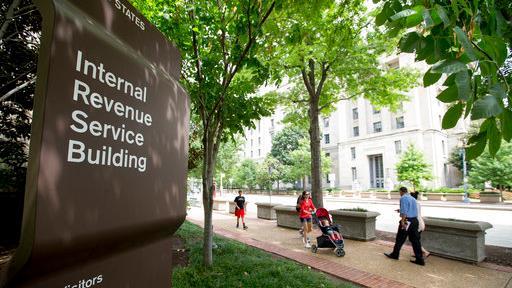IRS needs to modernize crashing computer system, lacks funds
The Internal Revenue Service (IRS) postponed the final deadline for taxpayers to file their fiscal year 2017 tax returns until midnight on Wednesday, after a computer glitch maimed critical online services on Tuesday.
In a statement released late Tuesday, the agency referred to the computer problems as “system issues,” after having termed them “technical difficulties” earlier in the day.
On what is typically the busiest tax day of the year – with five million returns filed on the final day of the season in 2017 – software failures highlight a desperate need for the agency to modernize its systems – just one of the many challenges the IRS has faced throughout recent years.
The bulk of the IRS’ computer systems reside in Martinsburg, West Virginia, and they are the oldest of any used by the federal government, according to an associate professor of history at the University of Georgia. The IRS is also reportedly still running the same code it developed 60 years ago.
Leaders of the agency have been warning of a potential malfunction for years due to their outdated infrastructure, as reported by The Wall Street Journal.
In testimony before Congress delivered on Tuesday, National Taxpayer Advocate Nina Olson said a lack of funding has prevented the IRS from updating its systems.
“Funding reductions have limited the IRS’ ability to modernize its existing information technology systems and to develop new systems,” she told lawmakers.
Since fiscal year 2010, IRS funding levels have declined by about 20%, according to Olson. Coloring some Republican perceptions of the agency on Capitol Hill is the Tea Party targeting scandal, which drew widespread public attention in 2013 when IRS official Lois Lerner admitted the agency was dissecting conservative groups’ applications for nonprofit status with greater scrutiny.
The agency received $11.2 billion in funds during the last fiscal year, and the Trump administration’s initial budget blueprint for 2018 aimed to cut another $239 million. However, the final budget for 2018 increased funding slightly to $11.4 billion, which Olson said the agency needed in order to implement the GOP’s massive tax reform overhaul.
Implementing the Tax Cuts and Jobs Act is expected to cost about $397 million over the next two years, according to the U.S. Treasury.
A reduction in funding has caused problems for the agency beyond the most recent technological challenges.
Enforcement procedures, like audits, have also suffered. The IRS screened just 0.62% of individual returns in 2017 as taxpayer audits dropped to their lowest level since 2002.
Staffing is another key issue at the IRS, which has lost about 18,000 full-time positions since 2010, according to The Washington Post. In 2017 alone, 6,801 permanent jobs were eliminated. In order to carry out the tasks associated with the Tax Cuts and Jobs Act, the agency will hire 1,734 new full-time workers over the next two years.
In January, the IRS warned it needed extra cash to not only administer the GOP’s new tax law, but also to carry out its own basic administrative duties. Former commissioners told FOX Business the slight bump in funds the agency received in 2018 is likely to be allocated almost entirely toward enforcing the new tax law.




















